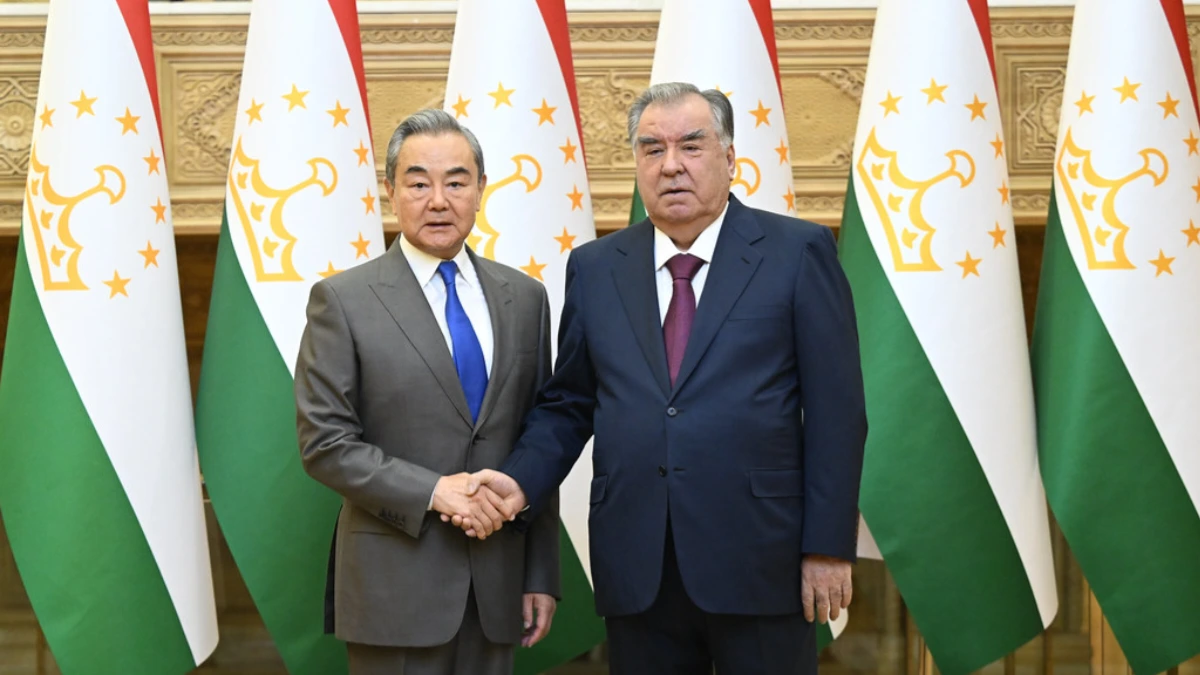DUSHANBE, Tajikistan — China plans to expand trade and investment with Tajikistan, Chinese Foreign Minister Wang Yi said during a visit to the Tajik capital on Saturday.
Wang pledged to increase imports of high quality agricultural products from Tajikistan and encourage Chinese companies to invest in the landlocked Central Asian nation.
“China will remain a trustworthy and reliable partner for Tajikistan,” Wang told his Tajik counterpart, Sirojiddin Muhriddin, according to a statement from China’s Foreign Ministry released late Saturday.
Tajikistan relies on trade and investment from global partners to sustain its economy, given its mountainous terrain and limited domestic market.
China has emerged as a key partner in Central Asia, funding infrastructure projects and investing in resources through the Belt and Road Initiative.
Wang also thanked Tajikistan for its “firm support on issues involving China’s core interests, such as Taiwan.”
The remarks come amid rising tensions with Japan, after Japanese Prime Minister Sanae Takaichi suggested Tokyo could respond militarily if China attacked Taiwan.
China views Taiwan as part of its territory and has not ruled out the use of force to assert control. Taiwan’s government rejects Beijing’s claims and insists that only its people can decide the island’s future.
Wang said China would “work with all parties to uphold the international consensus on the one China principle and jointly safeguard the achievements of the victory in World War Two.”
Analysts say the announcement reflects Beijing’s strategy to deepen economic and strategic ties in Central Asia.
“China is seeking both economic and strategic footholds in the region,” said Dr. Amina Rahmonova, a political economist at the University of Central Asia.
Expanding imports and encouraging investment can help stabilize Tajikistan’s economy while reinforcing China’s influence. Experts note potential geopolitical implications.
“Central Asian nations balance multiple partners, including Russia and the US Deepening China Tajikistan trade could shift regional dynamics,” said Julian Tan, senior analyst at the International Institute for Strategic Studies.
Tajikistan exported approximately $1.2 billion in goods last year, with metals and agricultural products making up nearly 60 percent of total exports, according to the Ministry of Economic Development and Trade.
China is Tajikistan’s largest trading partner, absorbing roughly 40 percent of its exports. Chinese investment in Tajikistan has grown steadily over the last decade, mainly in mining, hydroelectric projects, and infrastructure.
Wang said the expansion of agricultural imports would target high quality produce, potentially opening new markets for Tajik fruits and vegetables.
Local business leaders welcomed the announcement. “Expanding trade with China will help farmers and boost our economy,” said Rustam Karimov, a Tajik fruit exporter.
“We hope Chinese companies invest in processing facilities to add value to our products.” A government official involved in investment policy, speaking on condition of anonymity, said the visit reaffirmed China’s role as a long term economic partner.
“This partnership can support our national development plans if projects are implemented effectively,” the official said. Observers expect China to focus on infrastructure, agriculture, and resource development in Tajikistan in the coming years.
Proposed projects include road and rail improvements to better connect Tajikistan with China and regional markets.
“The next step is turning these pledges into real projects,” said Dr. Rahmonova. “The success of China Tajikistan trade initiatives will depend on coordination between governments and private enterprises.”
Security cooperation is also expected to expand, given Tajikistan’s proximity to Afghanistan. Discussions during Wang’s visit included joint measures to counter terrorism, part of China’s Global Security Initiative.
China’s commitment to boosting trade and investment in Tajikistan underscores its economic and strategic engagement in Central Asia.
By pledging to import high quality agricultural products and encouraging Chinese investment, Beijing aims to strengthen bilateral ties while addressing regional economic and security challenges.
The effectiveness of these efforts will depend on follow through and Tajikistan’s ability to balance multiple international partnerships.
